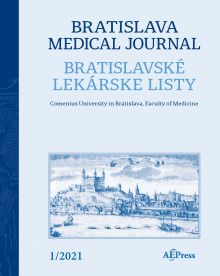Journal info
|
||||
Select Journal
Journals
Bratislava Medical Journal 2024 Ahead of print 2023 2022 2021 2020 2019 2018 2017 2016 2015 2014 2013 2012 Endocrine Regulations General Physiology and Biophysics Neoplasma Acta Virologica Studia Psychologica Cardiology Letters Psychológia a patopsych. dieťaťa Kovove Materialy-Metallic Materials Slovenská hudbaWebshop Cart
Your Cart is currently empty.
Info: Your browser does not accept cookies. To put products into your cart and purchase them you need to enable cookies.
Bratislava Medical Journal Vol.122, No.9, p.663–669,2021 |
||
| Title: Testosterone, personality traits and aggressive driving among young male drivers | ||
| Author: M. Sucha, M. Pillerova, T. Dominik, Z. Vaculcikova Sedlackova, E. Renczes, J. Hodosy, L. Tothova | ||
| Abstract: INTRODUCTION: Psychological testing to examine potentially aggressive behaviour is a gold standard, but it is not sufficient. Testosterone might increase an aggressive behaviour. AIM: The aim of this study was to evaluate whether testosterone along with psychological assessment of fitness to drive could help to identify aggressive drivers. METHODS: Male participants (n=150) aged from 20 to 25, who possessed a driving license and drive at least 100 km per week, were evaluated in this study using an Inventory of traffic-relevant personality characteristics, the Sensation Seeking Scale and the Buss-Durkee Aggression Inventory. Saliva was collected for testosterone and cortisol measurements. The five binomial logistic models with dependent variables Caused an accident, Driving license taken away, Court trial, Intoxicated driving and Sporty self-report were tested in this study. RESULTS: The ‘Intoxicated driving’ model, was found to be statistically highly significant, explaining 48.8 % of the dependent variable’s variance (χ2(16)=36.145, p<0.01). In this model with sensation seeking, actual testosterone and their interaction was highly significant and explained 20.4 % of intoxicated driving variability (χ2(3)=14.283, p<0.01). This was higher than sensation seeking scores only. CONCLUSION: To conclude, salivary testosterone might prove a biological marker that improves the identification of those with a high probability of aggressive driving or its subtypes (Tab. 3, Ref. 53). |
||
| Keywords: testosterone, traffic psychology, aggressive behaviour, traffic safety, young drivers | ||
| Published online: 31-Aug-2021 | ||
| Year: 2021, Volume: 122, Issue: 9 | Page From: 663, Page To: 669 | |
| doi:10.4149/BLL_2021_107 |
||
|
|
 download file download file |
|

